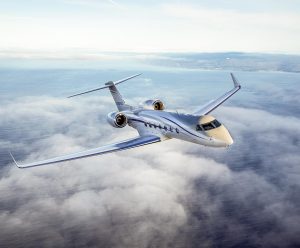
Climate scientists have raised concerns about the growing use of private jets, warning that the ultra-rich are treating them like taxis. Research tracking private flights has revealed a significant rise in carbon dioxide (CO2) emissions, which contribute to climate change. The study found that emissions from private jet travel increased by 46% between 2019 and 2023.
The research team analyzed global private flight data, including leisure trips like weekend getaways to Ibiza, Spain, as well as flights for major events such as the FIFA World Cup and the UN climate conference in Dubai. They found that flying in a private jet for just one hour can produce more CO2 than the average person emits in an entire year.
Professor Stefan Gossling, from Sweden’s Linnaeus University, who led the research, emphasized the disturbing trend. “There are many people using private jets like taxis, simply for convenience,” Gossling said. “If a single flight emits as much CO2 as an average person does in a year, just to watch a soccer match, it shows that some individuals feel they are exempt from the global climate standards.”
In 2023 alone, private jets were responsible for an estimated 15.6 million tonnes of CO2 emissions, equivalent to the emissions of 3.7 million petrol cars driving for an entire year. While this represents only a small fraction (1.8%) of total air travel emissions, it is still concerning given the size of the ultra-wealthy group responsible. These emissions come from a very small population: the so-called “ultra-high-net-worth individuals” (UHNWIs), who comprise just 0.003% of the global adult population but collectively hold assets averaging $123 million per person.
Despite the relatively small scale of private jet travel in terms of total global emissions, Gossling pointed out the stark disparity between the emissions of the rich and those of people in developing countries. “Each of these individuals emits more CO2 in a year than a small city in central Africa,” he said, where annual emissions can be as low as 0.1 tonnes per person. In contrast, the average global carbon footprint per person is around 4.3 tonnes annually.
 The study also traced the flight patterns of several well-known figures, including actors, singers, and directors. For example, one celebrity took 169 private flights in 2023, generating an estimated 2,400 tonnes of CO2, roughly equivalent to the emissions of 571 cars over a year. While the researchers chose not to name individuals, they highlighted that such travel contributes to the overall problem.
The study also traced the flight patterns of several well-known figures, including actors, singers, and directors. For example, one celebrity took 169 private flights in 2023, generating an estimated 2,400 tonnes of CO2, roughly equivalent to the emissions of 571 cars over a year. While the researchers chose not to name individuals, they highlighted that such travel contributes to the overall problem.
The majority of private jets are registered in the United States (69%), followed by countries like Brazil, Canada, Germany, Mexico, and the UK. Many of these flights were short-distance trips for leisure or events like film festivals, football matches, or other high-profile occasions. In fact, nearly half of the private flights studied (47.4%) traveled less than 500 kilometers (300 miles), showing how often private jets are used for short, carbon-intensive trips.
One of the most significant events was the 2022 FIFA World Cup in Qatar, where 1,846 private jets arrived, generating an estimated 14,700 tonnes of CO2. Similarly, during the 2023 UN climate conference in Dubai, 291 private jets contributed 1,500 tonnes of CO2 emissions. Many of these flights were likely taken by wealthy business people attending the conference.
The study, which analyzed data from 18.6 million private flights, found that many of the flights occurred during peak travel times, such as summer weekends. This behavior further underscores the casual, high-emission nature of private jet travel among the wealthy.
While the global aviation industry contributes to around 4% of global emissions, the growing use of private jets raises concerns about the future. According to the latest UN climate reports, if current trends continue, global temperatures could rise by 3.1°C this century, far exceeding the target set in the Paris Agreement to limit warming to 1.5°C. Emissions from commercial aviation alone are predicted to more than double by 2050, further intensifying the climate crisis.
The International Air Transport Association (IATA) has set a goal for global aviation to reach net-zero emissions by 2050. However, many climate experts remain skeptical about the feasibility of this goal, particularly as alternatives to fossil fuels for air travel are still in development.
In conclusion, the rising emissions from private jet travel highlight a significant issue of inequality and environmental impact. Professor Gossling warns that without urgent action, future generations may look back and regret not doing more to address the climate crisis. “We need to start at the top and make clear that everyone has a role in reducing emissions,” he said. The full study is published in Communications Earth & Environment, a peer-reviewed journal.








